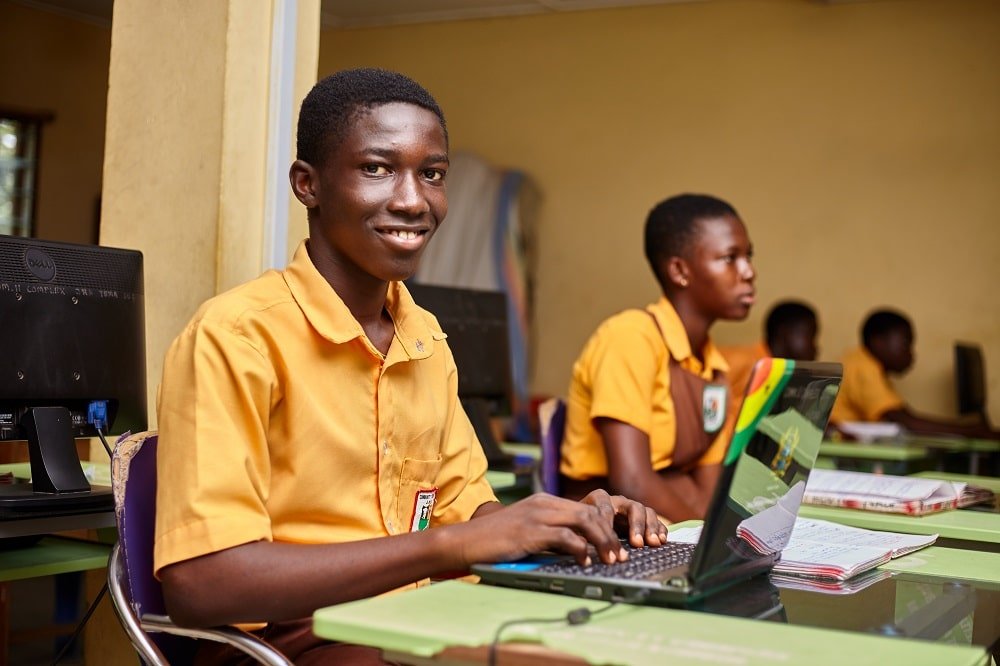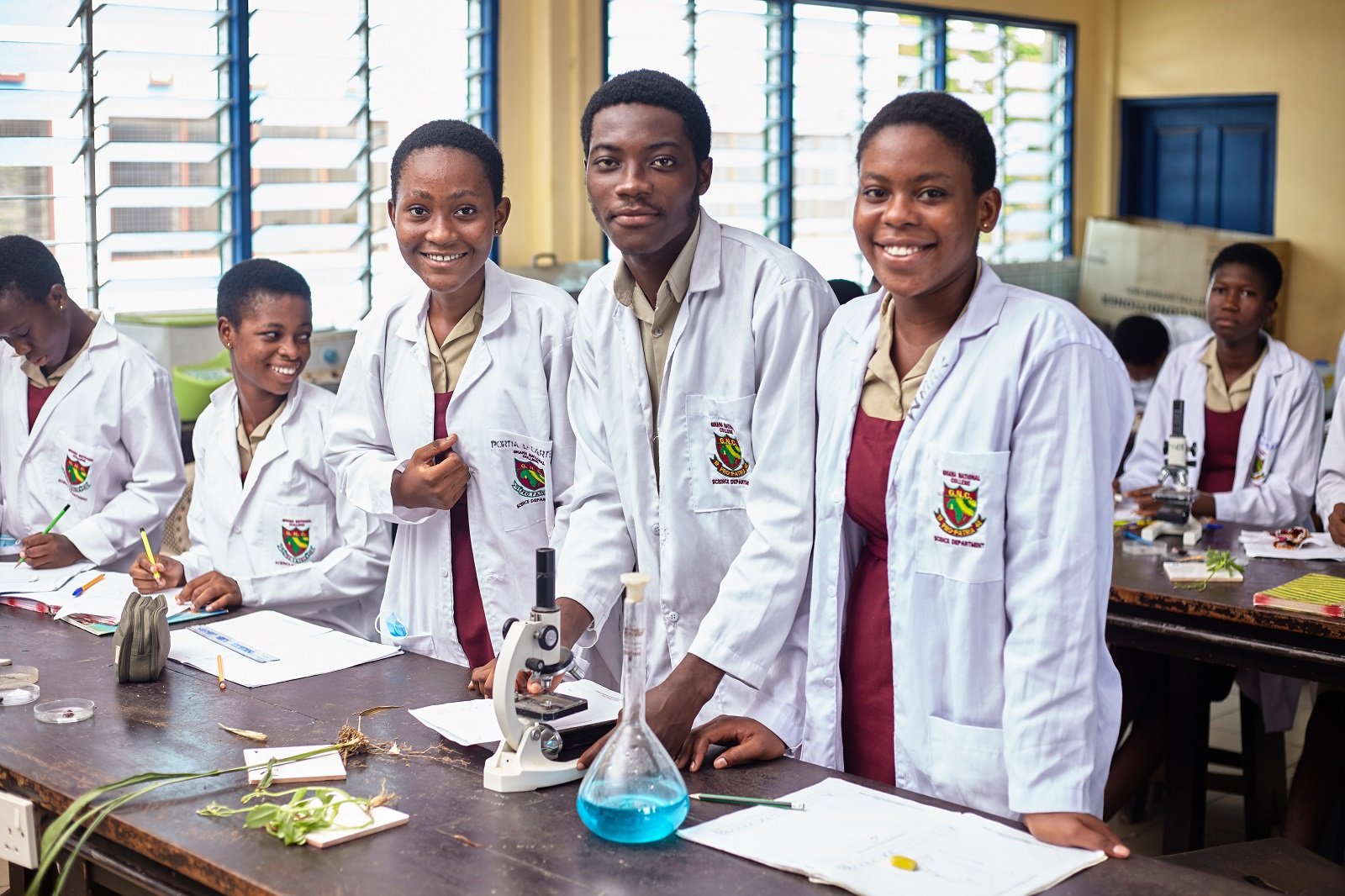Project details:
Ghana has carefully prioritized investment in education and skill training of its youth as a strategy to harness its demographic dividend. Given that more than 40% of the Ghanaian population is under 15 , it is an opportunity to equip the younger generation with the skills they need for the future and reap the benefits of the country’s demographic dividend. Over the past decade, the Government of Ghana (GoG) has devoted significant finances to the education sector ranging from 4.5 to 8 percent of its GDP in recent years. Despite the government’s significant investments and prioritization in education, and having achieved universal access to primary education, Ghana still battles with low learning outcomes. In order to achieve the education transformation, Ghana developed the Education Strategic Plan (ESP) 2018-2030.
The ESP revolves around the ambition to improve the quality of education for all in Ghana. The vision is to ensure that education plays a critical and positive role in the national development and Ghana’s transformation agenda. To achieve its transformational agenda, and to deliver on this vision, the Ministry of Education led a comprehensive education reform in 2018 with the overall target of improving the educational attainment for all learners, especially those at the pre-tertiary level. These reform initiatives are aimed at addressing the current weaknesses in Ghana’s education sector, as identified in the Education Sector Analysis and System Capacity Analysis report. The reform initiatives have been designed to strengthen the sector institutions to overcome their capacity gaps and accomplish the goals outlined in the ESP. It is expected that these reforms will ultimately lead to the improvement of learning outcomes, especially at the pre-tertiary levels.
It is in this respect that MoE with funding from Big Win Philanthropy (an independent private foundation) has contracted Okurufi Consult to work with the Ministry of Education to brand the educational reform and develop key communication messages and materials and implement a nationwide campaign to promote and communicate information about the educational reforms to influence behaviours and actions across the country; and facilitate broad-based stakeholder consultations to facilitate the engagement of key stakeholders in the reform process, as well as build consensus among stakeholders on the communication of reforms initiatives under the Ministry of Education Curriculum Branding and Strategic Communication project the following activities are being been undertaken:
• Conduct a rapid survey of the implementing audience to elicit current perspectives, awareness, understanding and other evidence on the operationalization of the reforms to gain insight into the brand strategy and visual identity
• Map out stakeholders and develop stakeholder engagement plan and identify communication needs and identify channels through which to reach them
• Develop a comprehensive communication strategy and implementation plan
• Design brand/visual identities, logo, key messages, concepts.
• Develop core messages and message guidance for the reform partners and create a comprehensive media and public relations plan that adheres to the MoE’s communication strategies and standards operating processes.
• Test the creative concepts with the intended audience to get their feedback and identify the best idea before designing the final materials
• Develop communication campaign materials targeting parents, students, teachers and education workers to critically respond to COVID-19 global pandemic, absenteeism and changes in educational service delivery.
• Develop a nationwide awareness campaign plan and implement a nationwide campaign through different media platforms
• Design a new website for MoE to stay relevant to the general public and maintain its presence in delivering education services in Ghana.

